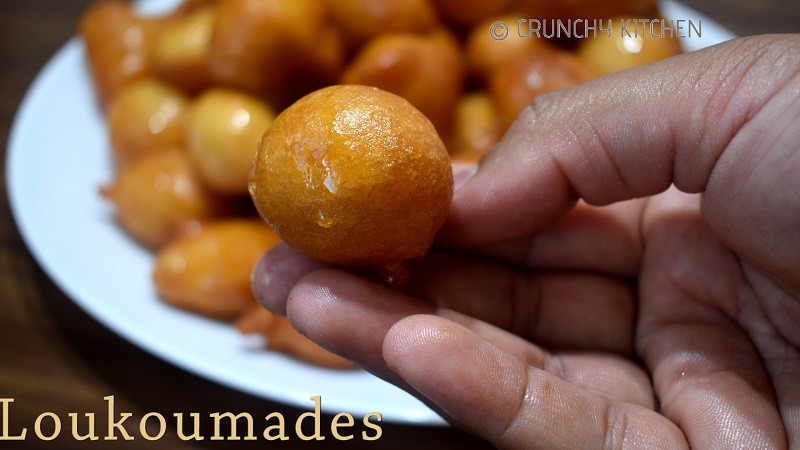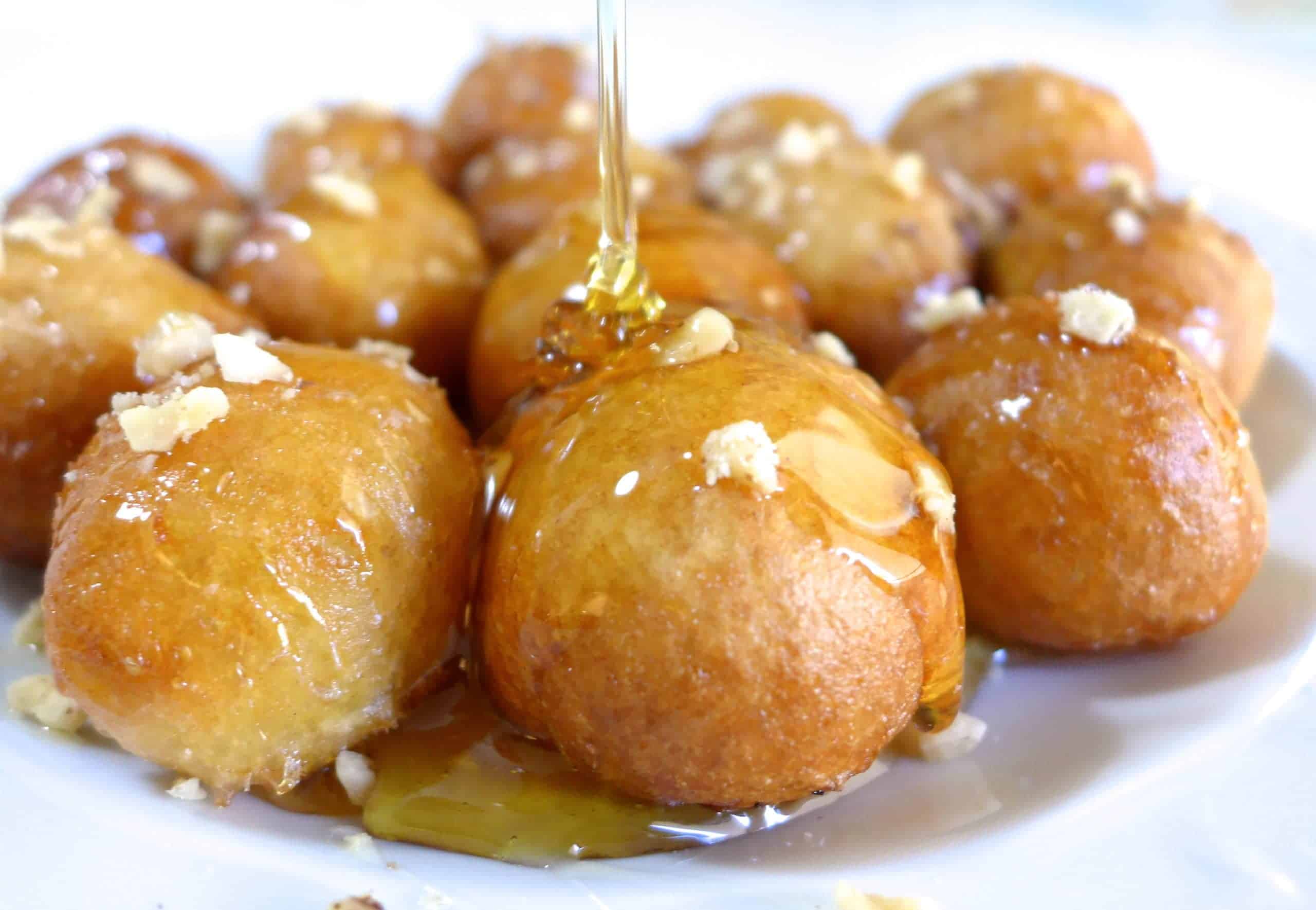Loukoumades
lokma, lokmades, λουκουμάδες, لقيمات, لقمة, loqma, bamiyeh
Lokma is a dessert made of leavened and deep fried dough balls, soaked in syrup or honey, sometimes coated with cinnamon or other ingredients. The dish was described as early as the 13th century by al-Baghdadi as luqmat al-qādi , "judge's morsels". The Arabic word luqma (لُقْمَةٌ) (plural luqmāt), means morsel, mouthful, or bite. The dish was known as luqmat al-qādi (لُقْمَةُ ٱلْقَاضِيِ) or "judge's morsels" in 13th-century Arabic cookery books, and the word luqma or loqma by itself has come to refer to it. The Turkish name for the dish, lokma, is derived from the Arabic, as is the Greek name loukoumádes (λουκουμάδες). The recipe for Luqmat al-Qadi, yeast-leavened dough boiled in oil and doused in honey or sugar syrup with rosewater, dates back to at least the early medieval period and the 13th-century Abbasid Caliphate, where it is mentioned in several of the existent cookery books of the time. It is also mentioned in the One Thousand and One Nights, in the story The Porter and the Three Ladies of Baghdad. The explorer and scholar Ibn Battuta in the 14th century encountered the dish he knew as Luqaymat al-Qadi at a dinner in Multan, during his travels in medieval India, where his hosts called it al-Hashimi.
Source: Wikipedia
Recipes


:max_bytes(150000):strip_icc()/lokma-fried-sweet-dough-2355439-hero-01-5c7daa7846e0fb0001d83dc5.jpg)





